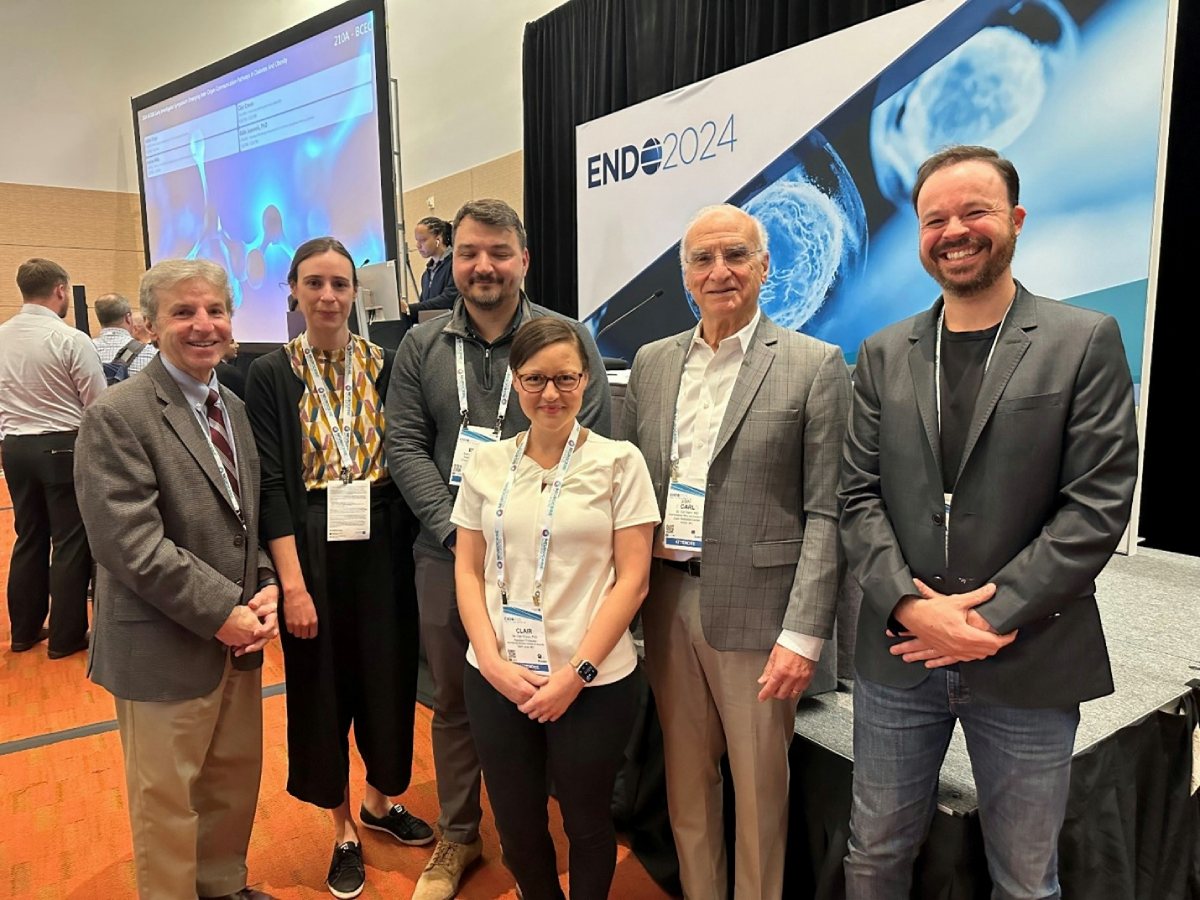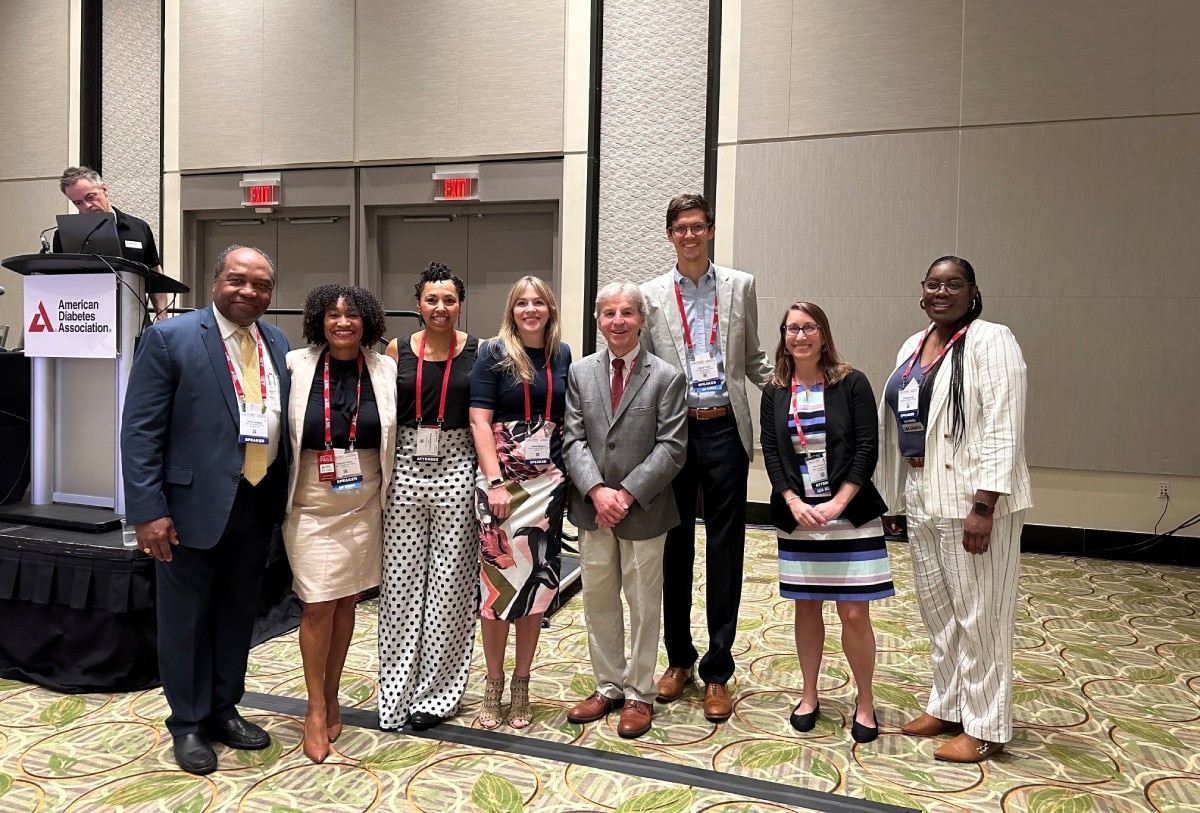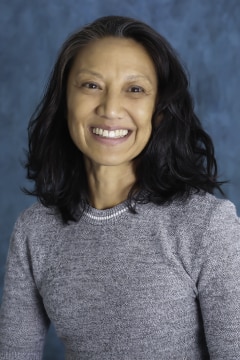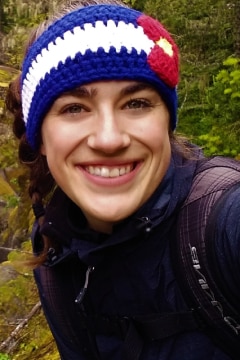News Around NIDDK
NIDDK kicks off 75th anniversary
NIDDK is embarking on a year-long commemoration of the Institute’s 75th anniversary in 2025, marking decades of advancing scientific knowledge and improving public health.
“I am excited to celebrate NIDDK’s 75th anniversary and the many people who’ve made possible our contributions to science, research, and health,” noted NIDDK Director Dr. Griffin P. Rodgers in his anniversary message.
To honor this milestone, NIDDK is launching a video series highlighting the Institute’s impact on public health. The first video premiered at the September NIDDK Advisory Council meeting and is available on YouTube. Videos featuring NIDDK’s intramural and extramural research programs will release next year.
Throughout 2025, NIDDK will reflect on its accomplishments while looking ahead to future innovations. We invite you to learn about the Institute’s rich history and ongoing commitment to advancing research and health for all.
The 75th anniversary webpage will serve as central hub for information about the commemoration, including upcoming events, related publications, and historical highlights. Be sure to visit regularly for updates.
Emerging NIDDK grantees share their diabetes and obesity research
 Left to right: Dr. William Cefalu, Director of the NIDDK Division of Diabetes, Endocrinology and Metabolic Diseases, NIDDK; Dr. Evanna Mills; Dr. Eldin Jašarević; Dr. Claire Crew; Dr. C. Ronald Kahn; and Dr. Rafael Arrojo e Drigo.
Left to right: Dr. William Cefalu, Director of the NIDDK Division of Diabetes, Endocrinology and Metabolic Diseases, NIDDK; Dr. Evanna Mills; Dr. Eldin Jašarević; Dr. Claire Crew; Dr. C. Ronald Kahn; and Dr. Rafael Arrojo e Drigo.
At the Annual Meeting of the Endocrine Society (ENDO 2024) in June, NIDDK hosted an early-career investigator symposium to showcase emerging leaders and rising stars who are working on discovering new pathways of inter-organ communications in diabetes and obesity research. The session was chaired by Dr. C. Ronald Kahn of the Joslin Diabetes Center and featured presentations on various topics related to tissue cross-talk, including extracellular vesicles, metabolites, gut microbiota-derived signals, and mitochondria transfers. Presenters included four assistant professors who have all received career development (K) and/or Research (R) or equivalent awards from NIH: Dr. Rafael Arrojo e Drigo, Vanderbilt University; Dr. Clair Crewe, Washington University in St. Louis; Dr. Evanna Mills, Harvard University; and Dr. Eldin Jašarevic, University of Pittsburgh Magee-Women’s Research Institute.
Early and midcareer investigators present on new methods for social support in diabetes management
 Left to right: Dr. Griffin P. Rodgers, NIDDK Director; Dr. Teaniese Davis; Dr. Miranda Broadney, NIDDK Program Director; Dr. Lindsay Mayberry; Dr. William Cefalu, NIDDK Director of the Division of Diabetes, Endocrinology, and Metabolic Diseases; Dr. Daniel Tilden; Dr. Maureen Monaghan Center, NIDDK Program Director; Dr. Brittany Smalls.
Left to right: Dr. Griffin P. Rodgers, NIDDK Director; Dr. Teaniese Davis; Dr. Miranda Broadney, NIDDK Program Director; Dr. Lindsay Mayberry; Dr. William Cefalu, NIDDK Director of the Division of Diabetes, Endocrinology, and Metabolic Diseases; Dr. Daniel Tilden; Dr. Maureen Monaghan Center, NIDDK Program Director; Dr. Brittany Smalls.
NIDDK hosted a symposium featuring early and midcareer career investigators at the 84th Scientific Sessions of the American Diabetes Association in June. The symposium focused on innovative methods and interventions aimed at leveraging social support to improve diabetes self-management and health outcomes. The investigators, listed below, received NIH funding from a variety of sources include the NIDDK DiabDocs K12 Physician Scientist Development Program, K26 Midcareer Investigators Award, and Early Stage Investigator research project grant program (R01).
- Dr. Daniel Tilden, assistant professor, University of Kansas Medical Center, presented on a novel assessment technique for caregiver-adolescent interactions and associations with psychosocial outcomes among adolescents with type 1 diabetes.
- Dr. Brittany Smalls, associate professor, University of Kentucky College of Medicine, presented on the evaluation of social network structures in rural-dwelling older adults with type 2 diabetes.
- Dr. Teaniese Davis, research investigator, Kaiser Permanente Georgia, presented on her ongoing work to adapt a peer intervention to improve diabetes distress among Black young adults.
- Dr. Lindsay Mayberry, associate professor, Vanderbilt University Medical Center, presented the primary outcomes of a mobile health intervention for adults with type 2 diabetes and their support partners.
The symposium supports the NIDDK Strategic Plan for Research, which highlights the need for interdisciplinary research on how biological, behavioral, social, and environmental factors interact to affect human health. This work also extends NIDDK’s interest in evaluating social networks following the 2022 workshop addressing the social component of diabetes health disparities.
Getting to Know: Dr. Carole A. Bewley
 Dr. Carole A. Bewley is chief of NIDDK’s Laboratory of Bioorganic Chemistry and section chief of the Natural Products Chemistry Section. Her research focuses on the discovery and development of biologically active natural products (secondary molecules produced from organisms, such as plants, that affect biological processes) to prevent bacterial and viral infection. She spoke with Rebekah Mikeasky about her research interests and what she likes to do in her spare time.
Dr. Carole A. Bewley is chief of NIDDK’s Laboratory of Bioorganic Chemistry and section chief of the Natural Products Chemistry Section. Her research focuses on the discovery and development of biologically active natural products (secondary molecules produced from organisms, such as plants, that affect biological processes) to prevent bacterial and viral infection. She spoke with Rebekah Mikeasky about her research interests and what she likes to do in her spare time.
How did you become interested in bioorganic chemistry and natural molecules?
I have always been fascinated with marine environments. When I started scuba diving, I traveled to and dove in many different locations throughout the Indo-Pacific and the Red Sea. Those marine environments are extremely dense with life. The diversity of the biology and ecology taking place on the reefs is astounding. So, I became interested in why some organisms lived happily among their neighbors, and others seemed to be protected and were devoid of any fouling. I started thinking about the chemistry going on in those organisms, which influenced my research interests. After completing undergrad, I attended Scripps Institution of Oceanography, which is part of the University of California, San Diego, where I pursued my doctoral degree in Marine Natural Products.
What led you to the NIH?
My research interests ended up leading me to the NIH. After completing my degree at Scripps, I wanted to pursue a postdoctoral fellowship in structural biology. At the time, I was doing research involving nuclear magnetic resonance spectroscopy (NMR) on natural products, and I learned NIDDK researchers were also conducting cutting-edge NMR research on macromolecules. I was especially interested in the intermolecular interaction studies that groups at the NIH were pursuing and became an NIDDK fellow because of it.
What do you enjoy the most about working at the NIH?
At every level, from the most senior accomplished researchers down to the high school and undergraduate students, the people at NIH are truly special. There’s a culture of generosity and mentorship here at all levels that makes it a great environment to work in. Everyone’s willingness to share and mentor across generational lines and career levels really helps everyone do the best science they can and helps so many trainees advance their careers. Beyond the people, the research infrastructure and resources present at the NIH are incredible. Here we are given the freedom to evolve our research interests and explore every aspect of where our findings might lead us.
What are your hopes for the future of bioorganic and natural molecule research?
Bioorganic chemistry and chemical biology have had a great impact at the NIH over many decades. Chemists are unique because they specialize in the discovery, creation, and invention of novel small molecules. Using organic or chemoenzymatic synthesis we optimize the properties of new molecules that serve as chemical tools for understanding biological processes, as well as therapeutics and vaccines to treat a variety of diseases. The synthetic routes developed to create novel molecules also have applications in pharma and biotech. The various technologies used in chemical biology and across the physical and life sciences are advancing at an extremely fast pace today. I am confident the fields of bioorganic chemistry and chemical biology will continue to make impactful contributions that will improve our ability to both diagnose and treat many different human diseases.
What advice do you have for people who have just started their research careers?
Try to find the best mentors you can – this holds true whether you’re going into industry, policy, or an academic career. In building your career I think it’s important to surround yourself with people you like to work with, people who think differently than you, and people whom you can seek guidance from. Do your best to immerse yourself with researchers of different paradigms and fields of study, so that you continue to grow as a scientist and mentor. It’s also important to always ask tons of questions. Stay curious and work hard!
What do you like to do in your free time?
I spend a lot of my free time acting as a steward for our land that has been planted and rejuvenated with native species. It’s a lot of large-scale, hands-on work with plants and meadows, and I find it enjoyable. I also train my border collies in dog agility and do strength training to keep active. Though it could be considered work, I always enjoy going to meetings and learning about new types of research that are outside my own general knowledge and research areas.

Fellow Spotlight: Dr. Victoria (Tori) Klein
 Name: Victoria (Tori) Klein
Name: Victoria (Tori) Klein
Hometown: Golden, Colorado
Current position: Nancy Nossal Postdoctoral Research Fellow, Natural Product Chemistry Section, Laboratory of Bioorganic Chemistry
What inspired you to pursue a research career?
I was a naturally curious kid. Thanks to the support of my parents, I spent much of my time exploring nature, visiting aquariums and science museums, and constantly asking questions. These experiences convinced me that I wanted to be a scientist, and by middle school, I was convinced that marine biologist was the career for me. Though my career goals started to shift from dolphin trainer to more academic pursuits in high school, it was during my undergraduate years at Oregon State University that I found a passion for research. In my senior year, I took a marine biology course that combined field research, laboratory studies, and classroom lectures. We learned about how compounds found in marine organisms, also known as natural products, were being used to treat cancer. I was immediately hooked. I loved that this type of research combined chemistry and biology, and the results could be directly applied to improve human health. By this point, I was also enjoying doing research for my senior thesis and started to consider a Ph.D. This brought me to the University of California, Santa Cruz where I studied drug discovery with Dr. Scott Lokey, with a focus on natural products as cancer therapeutics. Now as a postdoctoral research fellow at the NIH, I finally get to combine all my interests as I study how marine natural products can be used to treat diseases. Throughout the years, I’ve had incredible teachers and mentors who fostered my curiosity and encouraged me to pursue a research career.
What public health problem do you ultimately hope to solve with your research?
The world is facing an antibiotic resistance crisis. In fact, resistance has been observed for most, if not all, antibiotics in clinical use. This means that infections that were once easy to treat are once again becoming deadly. The focus of my research is to develop novel classes of antibiotics sourced from marine organisms. Specifically, I extract compounds from marine sponges and determine their ability to kill the bacteria that commonly cause multidrug-resistant infections. I further investigate these antibacterial compounds to identify their mechanism of action with the goal of developing a new class of antibiotics to which bacteria are not yet resistant. Ultimately, I hope this work informs future antibiotic drug development and optimization to help combat this urgent public health problem.

